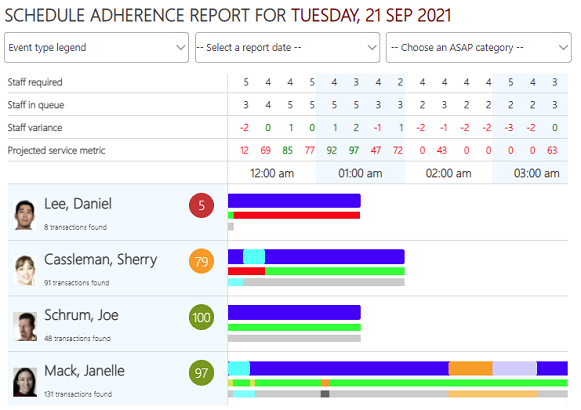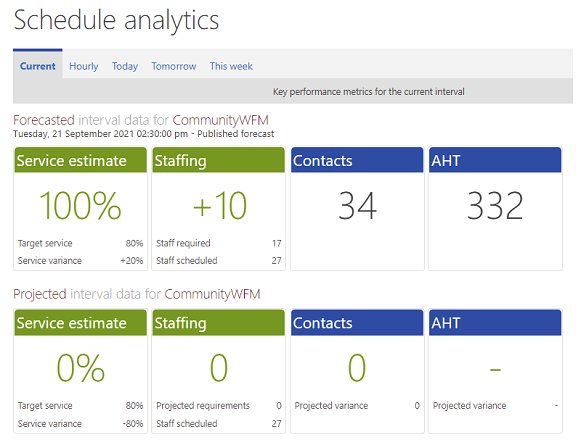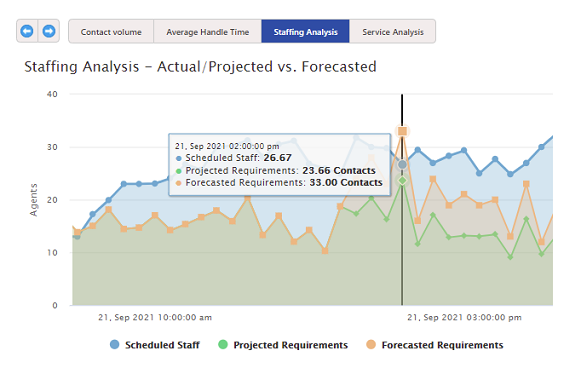
Analyzing the right metrics can make all the difference when determining exactly how to operate your contact center. Inaccurate or invalid data can result in poor productivity and improper staffing, both of which have negative consequences on the bottom line of a business.
To keep your contact center operating a high level, here are the top 5 workforce management reports every modern contact center should utilize.

1) Agent daily adherence report
Every contact center should be tracking agent activity on an hourly basis. A daily adherence report of every working agent lets you know who has been productive and who on your team needs to realign their work initiatives. It’s a great way to keep an eye on all agents through a single report.
2) Schedule event summary
Do you know exactly how many contact center hours were scheduled over the past 45 days? And how many hours during these days were spent working in the contact queue? What about your shrinkage? All this information can be accumulated quickly through a schedule event summary report. It’s a must have to get a better understanding of not only how many hours have been utilized but also how this time relates to the overall productivity of your team.

3) Schedule analytics
Reviewing data over the past month or two is great, but sometimes you just need a quick snapshot of what’s happening in your contact center right now. For this scenario, a schedule analytics report can be leveraged to better understand the current status of your contact center. With this report, it’s easy to see the exact performance of your team across multiple scheduling metrics. Best of all, there’s also a view to quickly understand what the forecast for tomorrow looks like so you can adjust as needed.

|
Want to learn more about WFM reporting and how it can impact your business?Click here to learn all about the CommunityWFM Enterprise solution, featuring our industry leading adherence solution! |
4) Intraday contact volume
When you leverage a modern WFM software solution for forecasting contact volume, you’re also able to quickly report on forecasting accuracy in relation to the actual contact volume for the day. Every contact center experiences some sort of a spike in volume during certain times of the day, so it’s important to keep an eye on the forecasted versus actual variance to better understand if any schedule changes need to be made.
 5) Intraday staffing analysis
5) Intraday staffing analysis
Simply put, there is no such thing as a perfect forecast. It’s a reason why contact centers should monitor contact volume throughout the day to determine how this metric relates to their staff size. If you’re seeing a spike in the variance of projected staff compared to the number of agents scheduled, your team can make the necessary adjustments in real-time before the variance increases and major issues begin to occur.
Hopefully this recap of the top WFM contact center reports was helpful. The key link connecting these reports together is how they provide valuable data that, when acted upon appropriately, can make a major difference within your contact center.








